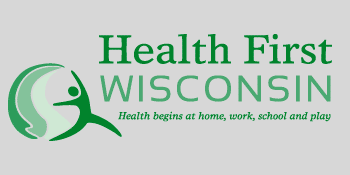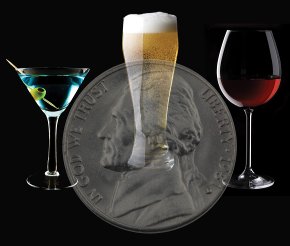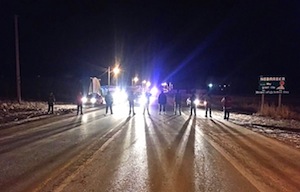Blog
Search
Blog
Report: Alcohol-Related Harm Costs Wisconsin $6.8 Billion a Year
- Details
- Created: Thursday, April 04 2013 21:37
 A new report has put a price tag on the annual cost of excessive drinking in Wisconsin, estimating that it costs the state $6.8 billion a year. The study, conducted and published by Health First Wisconsin, totaled drinking-related costs in the areas of health care, criminal justice, lost workplace productivity, and at home. The figure amounts to the equivalent of $1200 per year per Wisconsin resident, and taxpayers end up absorbing approximately $2.9 billion of the total costs. Examples of alcohol-related harm contributing to the cost in 2011 included more than 1,500 deaths, nearly 50,000 hospitalizations, and more than 46,000 treatment admissions. The new Wisconsin study is similar to the Alcohol Justice report, The Annual Catastrophe of Alcohol Use in California, available here.
A new report has put a price tag on the annual cost of excessive drinking in Wisconsin, estimating that it costs the state $6.8 billion a year. The study, conducted and published by Health First Wisconsin, totaled drinking-related costs in the areas of health care, criminal justice, lost workplace productivity, and at home. The figure amounts to the equivalent of $1200 per year per Wisconsin resident, and taxpayers end up absorbing approximately $2.9 billion of the total costs. Examples of alcohol-related harm contributing to the cost in 2011 included more than 1,500 deaths, nearly 50,000 hospitalizations, and more than 46,000 treatment admissions. The new Wisconsin study is similar to the Alcohol Justice report, The Annual Catastrophe of Alcohol Use in California, available here. Nine States Considering Alcohol Tax Increases
- Details
- Created: Thursday, April 04 2013 12:46

So far, 2013 is shaping up to be a good year for state proposals to increase alcohol taxes. Eight states have introduced bills this year that would raise the tax rate on some or all alcoholic beverages in their state. Several of the proposed bills, including ones introduced in New York, New Hampshire, and Minnesota, specifically charge for harm by allocating alcohol tax revenues to mitigate the rising costs of alcohol-related harm. Other proposals include Massachusetts, Nebraska, Oklahoma, Utah, and West Virginia. Even policymakers in Wyoming, the state with the lowest beer tax rate (passed at its current rate in 1935), have indicated an interest in increasing the tax rate in order to bring in more revenue. Increasing alcohol taxes is one of the most effective public policies available to reduce alcohol-related harm, and is consistently associated with decreases in motor vehicle crashes and fatalities, all-cause mortality, violence, and alcoholism. To read more about specific alcohol tax bills introduced in each state, see our Legislative Summary page.
Tribal Members Demonstrate Against Alcohol-Related Harm
- Details
- Created: Tuesday, March 19 2013 21:37

More than 100 Oglala Lakota Sioux tribal members and their allies rallied last week in response to the alcohol-related harms and illegal activity, caused by alcohol sold to tribal members in the border town of Whiteclay, Nebraska. The unincorporated hamlet, which is within walking distance of the Pine Ridge Indian Reservation, has 14 residents and four liquor stores which sell nearly 5 million cans of beer each year. The liquor outlets engage in illegal alcohol activity, including sales of alcohol to minors, sales of alcohol to intoxicated people, accepting food stamps as payment for beer, and trading alcohol for sex. The lack of law enforcement has led to a public health crisis: 25% of youth from the Pine Ridge Reservation suffer from Fetal Alcohol Spectrum Disorder, and 2/3 of the adults suffer from alcoholism. Click here to read more.
More Articles ...
Subcategories
Help us hold Big Alcohol accountable for the harm its products cause.
| GET ACTION ALERTS AND eNEWS |
STAY CONNECTED    |
CONTACT US 24 Belvedere St. San Rafael, CA 94901 415-456-5692 |
SUPPORT US Terms of Service & Privacy Policy |
Copyright © 2026 Alcohol Justice. All Rights Reserved.
Joomla! is Free Software released under the GNU General Public License.


